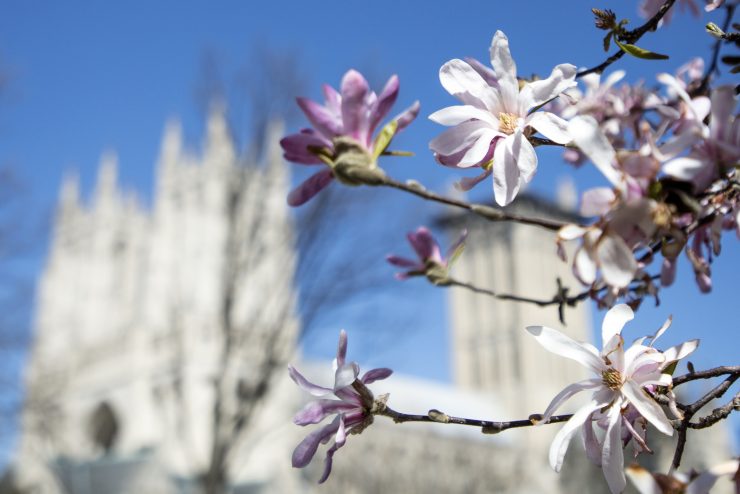Our Great High Priest

Hebrews 5: 5-10
Christ did not glorify himself in becoming a high priest, but was appointed by the one who said to him, “You are my Son, today I have begotten you”; as he says also in another place, “You are a priest forever, according to the order of Melchizedek.” In the days of his flesh, Jesus offered up prayers and supplications, with loud cries and tears, to the one who was able to save him from death, and he was heard because of his reverent submission. Although he was a Son, he learned obedience through what he suffered; and having been made perfect, he became the source of eternal salvation for all who obey him, having been designated by God a high priest according to the order of Melchizedek.
Melchizedek is one of the most mysterious figures in all of Scripture. Though he figures prominently in the letter to the Hebrews, Melchizedek is first mentioned early in the book of Genesis. In Genesis 14 Abram goes out to battle against various kings, rescuing his nephew Lot and bringing back many goods and treasures. Upon Abram’s return, Genesis tells us, ‘King Melchizedek of Salem brought out bread and wine; he was priest of God Most High’ (Genesis 14:18). Melchizedek blessed Abram, and Abram gave him one tenth of everything. That is all Genesis tells of this mysterious figure, yet what it does tell us is significant. Abram’s gifting of one tenth of his spoils (an early example of the practice of tithing) is a clear sign of the importance of this priest of God Most High, whose gifts of bread and wine have long been recognized by Christians as a type of the Eucharistic elements.
In Melchizedek’s later appearance in the letter to the Hebrews, it is his priestly function that is emphasized and connected with Jesus. The writer quotes Psalm 110 in saying that Jesus is ‘a priest forever, according to the order of Melchizedek’ (Psalm 110:4). Though we may not often consider the idea of Jesus as priest, it is a key theme in Hebrews. The writer seeks to demonstrate both Jesus’ connection with the eternal priesthood of Melchizedek (Hebrews 7:3) and the fundamentally unique aspect of Jesus’ priesthood. For Jesus is both priest and sacrifice, the one offered and the one doing the offering. His sacrifice was once for all and never needs to be repeated, as was the case with Temple sacrifices. And our response, in imitation of Melchizedek, is to bring forth bread and wine and offer our sacrifice of praise and thanksgiving with prayer, supplication, and reverent awe, trusting that by his sacrifice, our great high priest, Jesus Christ, is the source of eternal salvation for all of us who love and obey him.
prayer
Almighty God, you alone can bring into order the unruly wills and affections of sinners: Grant your people grace to love what you command and desire what you promise; that, among the swift and varied changes of the world, our hearts may surely there be fixed where true joys are to be found; through Jesus Christ our Lord, who lives and reigns with you and the Holy Spirit, one God, now and for ever. Amen.
—The Book of Common Prayer, p. 219